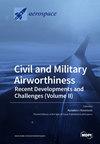ARCnet: A Multi-Feature-Based Auto Radio Check Model
IF 2.1
3区 工程技术
Q2 ENGINEERING, AEROSPACE
引用次数: 0
Abstract
Radio checks serve as the foundation for ground-to-air communication. To integrate machine learning for automated and reliable radio checks, this study introduces an Auto Radio Check network (ARCnet), a novel algorithm for non-intrusive speech quality assessment in civil aviation, addressing the crucial need for dependable ground-to-air communication. By employing a multi-scale feature fusion approach, including the consideration of audio’s frequency domain, comprehensibility, and temporal information within the radio check scoring network, ARCnet integrates manually designed features with self-supervised features and utilizes a transformer network to enhance speech segment analysis. Utilizing the NISQA open-source dataset and the proprietary RadioCheckSpeech dataset, ARCnet demonstrates superior performance in predicting speech quality, showing a 12% improvement in both the Pearson correlation coefficient and root mean square error (RMSE) compared to existing models. This research not only highlights the significance of applying multi-scale attributes and deep neural network parameters in speech quality assessment but also emphasizes the crucial role of the temporal network in capturing the nuances of voice data. Through a comprehensive comparison of the ARCnet approach to traditional methods, this study underscores its innovative contribution to enhancing communication efficiency and safety in civil aviation.ARCnet:基于多种特征的自动无线电检查模型
无线电检查是地空通信的基础。为了整合机器学习以实现自动、可靠的无线电检查,本研究引入了自动无线电检查网络(ARCnet),这是一种用于民航非侵入式语音质量评估的新型算法,可满足可靠的地空通信的关键需求。通过采用多尺度特征融合方法,包括在无线电检查评分网络中考虑音频的频域、可理解性和时间信息,ARCnet 将人工设计的特征与自监督特征相结合,并利用变压器网络来增强语音片段分析。利用 NISQA 开源数据集和专有 RadioCheckSpeech 数据集,ARCnet 在预测语音质量方面表现出卓越的性能,与现有模型相比,其皮尔逊相关系数和均方根误差 (RMSE) 均提高了 12%。这项研究不仅强调了在语音质量评估中应用多尺度属性和深度神经网络参数的重要性,还强调了时态网络在捕捉语音数据细微差别方面的关键作用。通过将 ARCnet 方法与传统方法进行综合比较,本研究强调了其在提高民航通信效率和安全性方面的创新贡献。
本文章由计算机程序翻译,如有差异,请以英文原文为准。
求助全文
约1分钟内获得全文
求助全文
来源期刊

Aerospace
ENGINEERING, AEROSPACE-
CiteScore
3.40
自引率
23.10%
发文量
661
审稿时长
6 weeks
期刊介绍:
Aerospace is a multidisciplinary science inviting submissions on, but not limited to, the following subject areas: aerodynamics computational fluid dynamics fluid-structure interaction flight mechanics plasmas research instrumentation test facilities environment material science structural analysis thermophysics and heat transfer thermal-structure interaction aeroacoustics optics electromagnetism and radar propulsion power generation and conversion fuels and propellants combustion multidisciplinary design optimization software engineering data analysis signal and image processing artificial intelligence aerospace vehicles'' operation, control and maintenance risk and reliability human factors human-automation interaction airline operations and management air traffic management airport design meteorology space exploration multi-physics interaction.
 求助内容:
求助内容: 应助结果提醒方式:
应助结果提醒方式:


